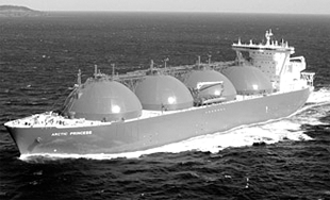The international shipping industry is a booming industry that is responsible for approximately 90% of world trade. Without it, worldwide trade and the bulk transport of raw materials would simply not be possible, while food and other manufactured goods would be unaffordable for the majority of people.
The trade is continuing to expand thanks to competitive freight costs, the growing efficiency of shipping and improved economic liberalisation. It’s safe to say that the future of the shipping industry looks golden!
Looking at the numbers, there are more than 50,000 merchant ships trading internationally, the world fleet is registered in more than 150 nations, and it is manned by more than a million seafarers, comprising of many different nationalities.
Specialist pipe in the Shipping Industry
Piping is used extensively in ships for all sorts of varied reasons, including:
• Bilge Systems
• Ballast Systems
• Sprinkler systems
• CO2 piping
• Engine cooling systems
Many of these pipes (such as sanitary piping) will be made of either plastic or mild steel. However, those that carry either potentially dangerous or particularly corrosive chemicals or fluids will be manufactured from stainless steel due to its many excellent properties.
Stainless Steel in the Shipping Industry
Steel has been used for more than 150 years in the shipbuilding industry because of its various mechanical properties and relatively low cost. It goes without saying that it has proved itself to be very useful in what are naturally highly corrosive sea water environments.
There is technically no industry-standard for marine grade stainless but 316 and 316L are traditionally the most common grades found in the shipping industry. This is due to the inclusion of molybdenum in their composition. This alloying element helps to prevent saltwater from causing pitting and crevice corrosion, but it does mean that these grades can be more expensive.
Stainless steel in the shipping industry is used for all manner of things, not just piping systems. For instance, new structural steel plates have been developed which has resulted in corrosion resistant plates for double hull tankers. Interestingly, crude oil tankers are now required, by law, to have double hulls to prevent oil spillage.
Another advantage of structural steel is that it is lighter which obviously, very advantageously, reduces weight reduction in the ships, consequently reducing both fuel consumption and CO2 emissions.
Duplex stainless steels are also becoming more common in the shipping industry. The reasons for this are numerous:
• It has very good corrosion resistance against many liquids
• It is extremely strong, making it possible for construction engineers to use thinner wall thicknesses and structural profiles therefore reducing charge weight. As an example, using Duplex Stainless Steel for storage tanks can result in a weight reduction for some construction components of up to 40%.
• Customized special profiles can be manufactured on a project-specific basis
• It has good welding characteristics
The growth of the LNG industry also has a lot to answer for in the increase of steels being used in the shipping industry. This is because the transportation method of choice for KLNG is shipping via giant LNG tankers which are designed specifically to preserve the natural gas in a liquid form.
Nickel steel alloys have been found to be the most effectual metals for the production, containment and storage of liquefied natural gas (LNG) and other cryogenic substances. This is due to its unrivaled ability to withstand the impact of very low temperatures.
Special Piping Materials and the Shipping Industry
A growing number of ship builders are now choosing to use stainless steel as their primary building material due to its strength, durability and ability to withstand corrosion. Special Piping Materials is increasingly working with these manufacturers and is more than happy to advise and supply accordingly.
The stainless steel products – pipes, fittings and flanges – that we source, stock and supply comes only from the most reputable and experienced mills from around the world.
Further to this, we are also able to organise any testing that is required, ensuring that our products will perform reliably and as intended.
